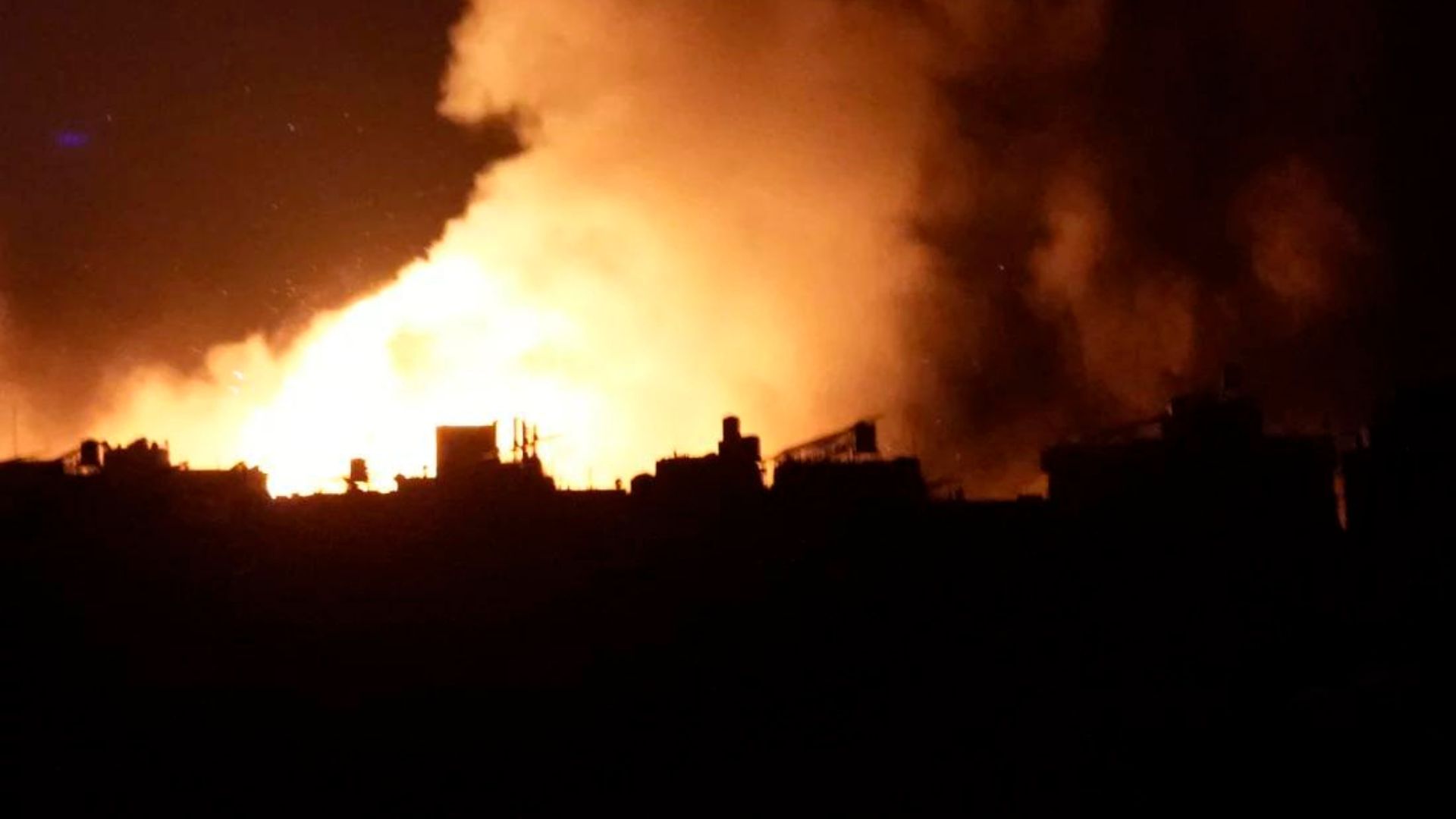A major escalation in the battle, which also included strikes on a Palestinian refugee camp in the north, occurred late on Saturday when Israel increased its bombing of Lebanon, causing powerful explosions to tremble across Beirut's southern neighborhoods.
Rallies were staged throughout the world to mark the coming anniversary of the start of the Gaza war, while thousands of people, including Palestinian refugees, continued to escape the worsening conflict.
The strong explosions began near midnight and continued into Sunday, following Israel's military call for residents to evacuate areas in Dahiyeh, a predominantly Shiite suburb of Beirut.
AP video footage captured the blasts illuminating the densely populated southern suburbs, known for Hezbollah's strong presence. This uptick in violence followed a day of sporadic strikes and reconnaissance drone activity overhead.
Israel's military confirmed that it was striking targets near Beirut and reported that about 30 projectiles had crossed from Lebanon into Israeli territory, with some being intercepted.
Two buildings, one of which had previously hosted the Hezbollah-run broadcaster Al-Manar, and the other near the road leading to Lebanon's only international airport were apparently the targets of the strikes.

Initial reports on social media said that one of the attacks had damaged an oxygen tank storage facility; however, Khaled Kaddouha, the owner of the facility, later refuted this.
Hezbollah declared shortly afterward that it had attacked a group of Israeli soldiers "with a large rocket salvo, hitting them accurately" close to the Manara settlement in northern Israel.
A Hamas military official, his wife, and their two young kids were killed on Saturday in an Israeli attack on the northern Beddawi camp, the Palestinian militant group said.
Hamas later revealed that Israeli attacks in Lebanon's eastern Bekaa Valley had claimed the life of another member of its military wing, illustrating the conflict's rising toll.
Buildings were destroyed and debris was strewn about as a result of these strikes, demonstrating the extent of the harm caused by the ongoing military operations.
Fighting in the region has reportedly escalated as a result of Israeli troops killing numerous senior Hezbollah leaders and several Hamas figures in Lebanon since the start of the Israel-Hamas conflict.
The fighting has resulted in at least 1,400 deaths in Lebanon, including civilians, medical personnel, and Hezbollah fighters. In less than two weeks, 1.2 million people have been forced from their homes.
In the midst of the continuing conflict, Israel has a strategic goal: driving terrorist organizations off its borders so that displaced Israelis can return home.
Supported by Iran following Hamas's October 7 strike, Hezbollah, the largest military organization in Lebanon, immediately started shooting rockets into Israel while claiming it was a gesture of support for the Palestinian people.
The military confrontations between Hezbollah and Israel have become a daily occurrence, heightening tensions in the region.
Last week, Israel initiated a limited ground operation in southern Lebanon following a series of attacks that claimed the lives of longstanding Hezbollah leader Hassan Nasrallah and others.
According to reports, the current fighting is the fiercest since Israel and Hezbollah's brief battle in 2006, during which nine Israeli soldiers were verified killed in ground combat.
Since the battle progressed, Israel claims that about 440 Hezbollah fighters have died as a result of its military actions.
Abbas Araghchi, Iran's foreign minister, declared efforts to mediate a cease-fire in Gaza and Lebanon and mentioned the participation of unidentified nations putting out proposals.
The supreme leader of Iran praised Araghchi's recent missile strikes on Israel, signaling that he would be willing to carry out more of these measures if needed.
In a statement on Saturday evening, Israeli Prime Minister Benjamin Netanyahu declared, “Israel has the duty and the right to defend itself and respond to these attacks, and it will do so.” He added regarding Lebanon, “We are not done yet.”
The Israeli military had earlier that day claimed that some ninety missiles had entered Israeli territory from Lebanon. The majority were stopped, but a few made landfall in the Arab village of Deir al-Asad in the north, injuring three persons slightly.
Over a dozen Israeli bombings that took place overnight into Saturday morning resulted in at least six fatalities in Lebanon, according to the state-run National News Agency of Lebanon.
An estimated 375,000 people are said to have fled from Lebanon into Syria in less than two weeks. Journalists for the Associated Press saw hundreds of these people walking through the wreckage left by Israeli bombings to reach the Masnaa Border Crossing.





























